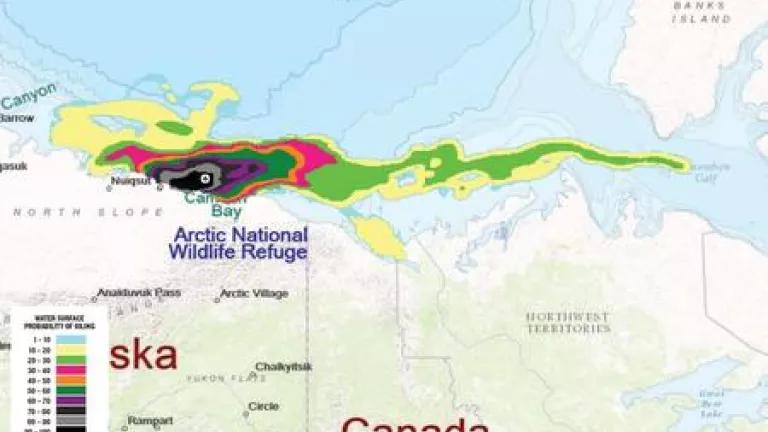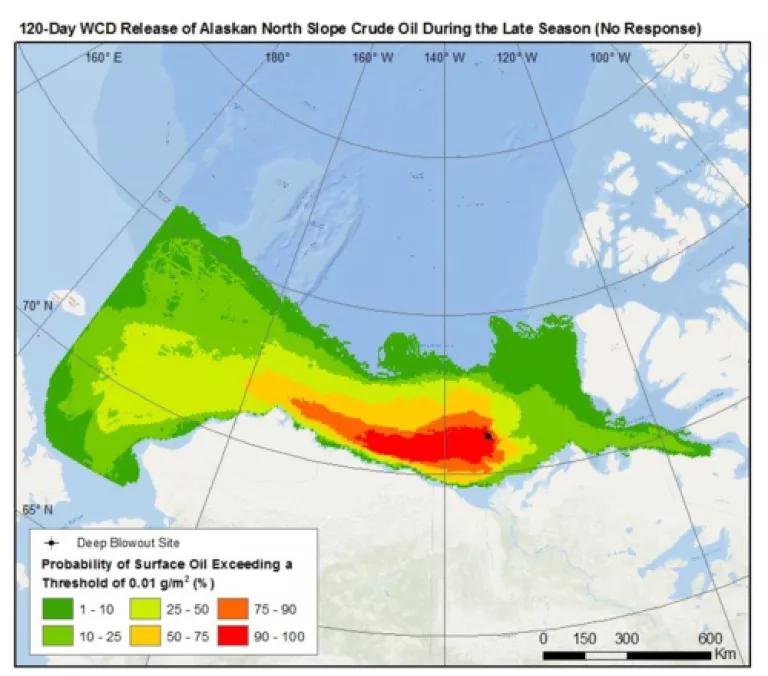
The announcement by the U.S. and Canada to protect the Arctic from oil drilling is a win for citizens in the U.S., Canada and around the world. President Obama and Prime Minister Trudeau have stood up for current and future generations by protecting this important region from the devastating impacts of oil drilling. Both leaders understand that oil drilling in this region would have devastating climate impacts that are incompatible with our moral responsibility to leave our children with a better future.
The joint U.S. and Canadian announcement recognizes the benefit of both countries acting together to protect the shared Arctic region. The U.S. announcement indefinitely puts off limits from offshore oil and gas the vast majority of U.S. waters in the Chukchi and Beaufort Seas. And Canada agreed to “designate all Arctic Canadian waters as indefinitely off limits to future offshore Arctic oil and gas licensing”, with a review every five years.
The Arctic Ocean is remote and icy, hypersensitive, and an impossible place to clean up oil. So this decision recognizes that “the only safe Arctic Ocean drilling is no drilling at all” since there is a high chance of a spill. NRDC analysis of spills in the U.S. Arctic found that they would have devastating impacts on both the U.S. and Canadian Arctic region (see figure).
Analysis of oil spills in the Canadian Arctic showed similar devastation. World Wildlife Fund Canada (WWF) provided a first glimpse of just how problematic a late-season oil spill in the Beaufort Sea could be with the worst cases resulting in spilled oil travelling more than 1,000 kilometers from its source with the potential for impacts to shorelines and waters in Canada, the U.S. and Russia (see figure).

Given the unique nature of the Arctic Ocean we have no way to prevent devastating impacts to its whales, walruses, polar bears, belugas, and other wildlife from such a spill. This U.S. and Canadian decision recognizes the inevitable devastation that would occur if oil drilling were expanded in this region.
The Canadian and U.S. decisions also recognize the climate implications of expanded oil drilling in the Arctic. Oil production in this region would take decades to commercialize, arriving after the transition to cleaner fuels must already have turned the corner if we are going to avoid the worst impacts of climate change. Clean energy is booming around the world and countries committed to dramatically reduce their emissions causing climate change under the Paris Agreement. Expanded oil drilling in the Arctic would be based on bad long-term economic investments and science. A decision to expand drilling in this region would be the equivalent to a student flunking economics, science, and engineering at the same time.
Hopefully this is just the beginning of Prime Minister Trudeau’s recognition that continued expansion of dirty oil in Canada is incompatible with his climate commitments under the Paris Agreement. There are many more opportunities for him to show that he is prepared to walk the talk on climate leadership and leave a better future for our children and grandchildren.
